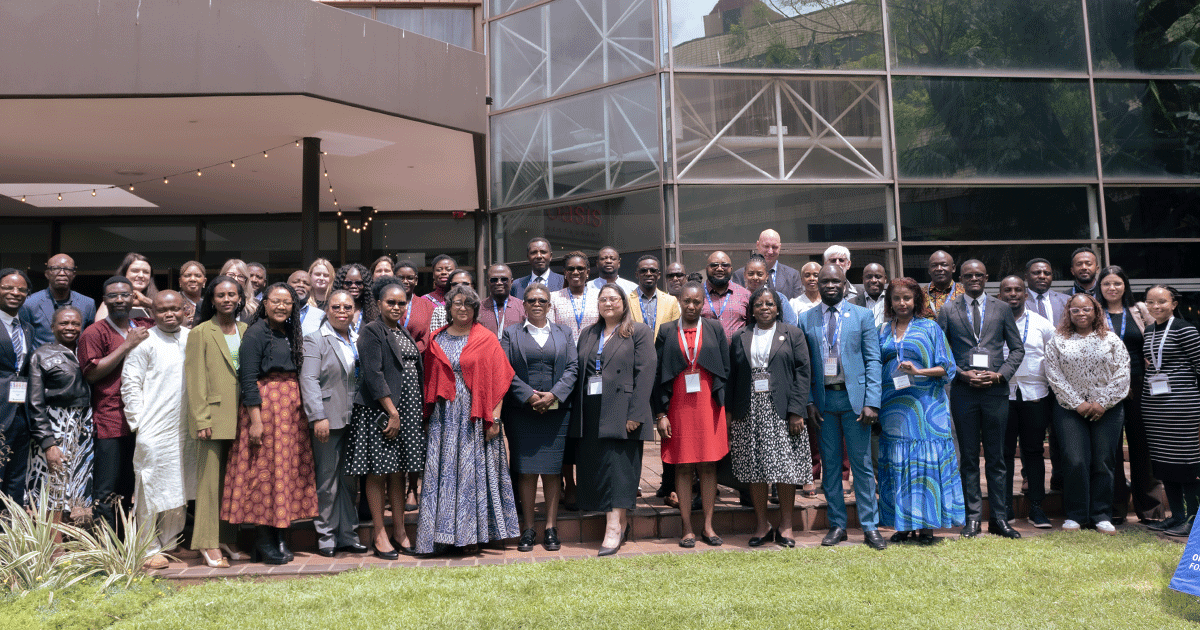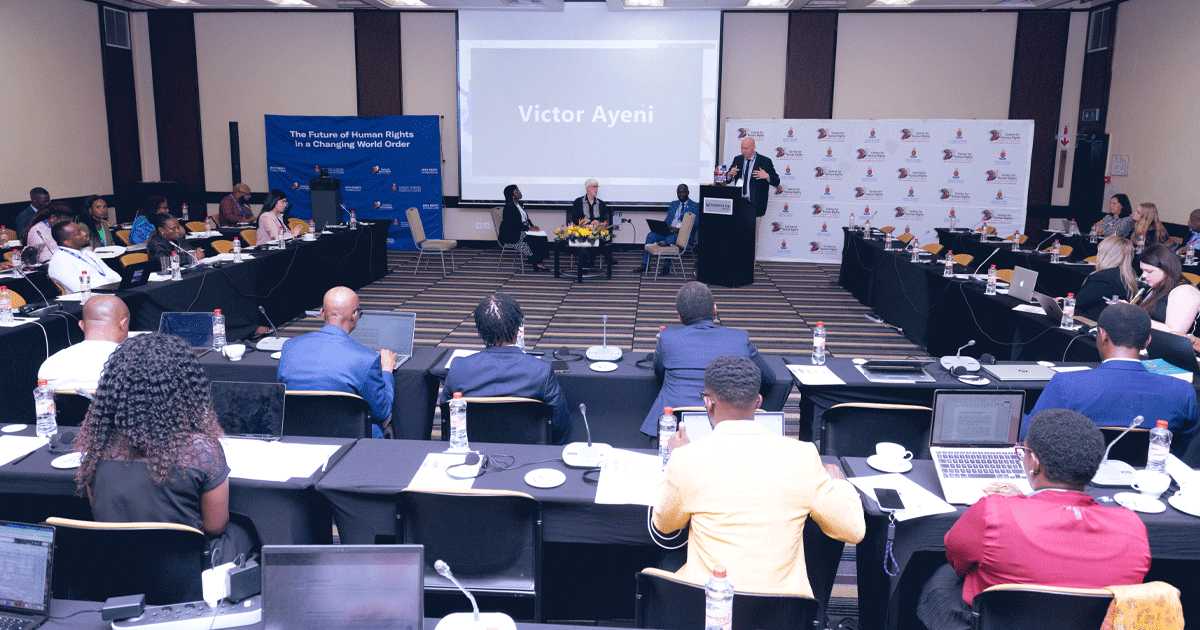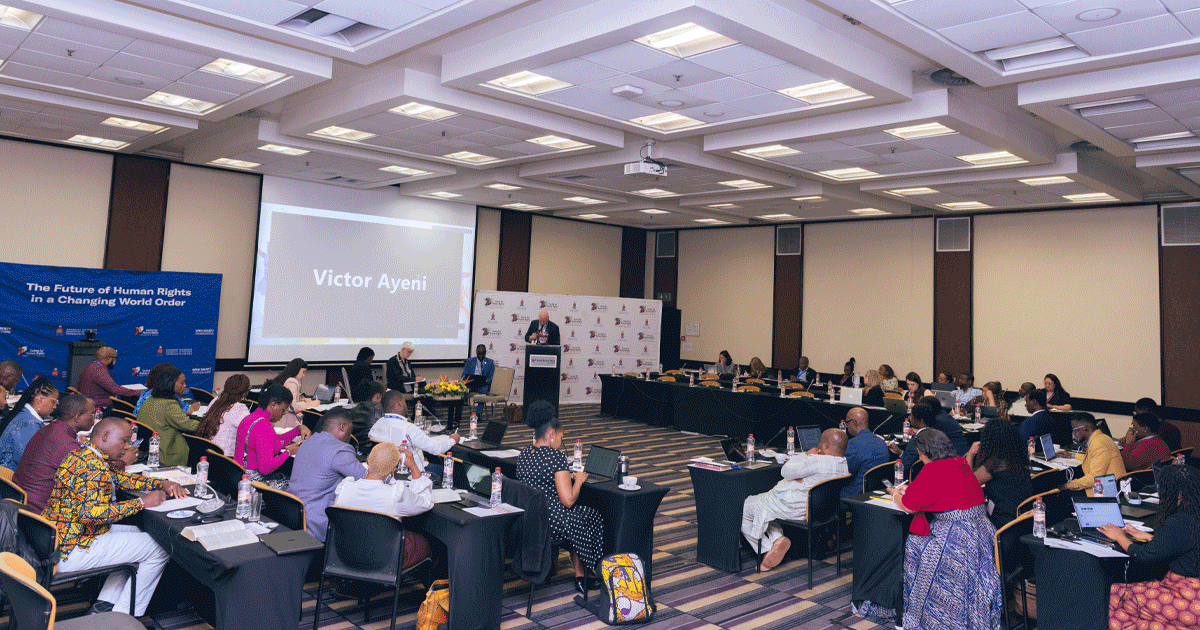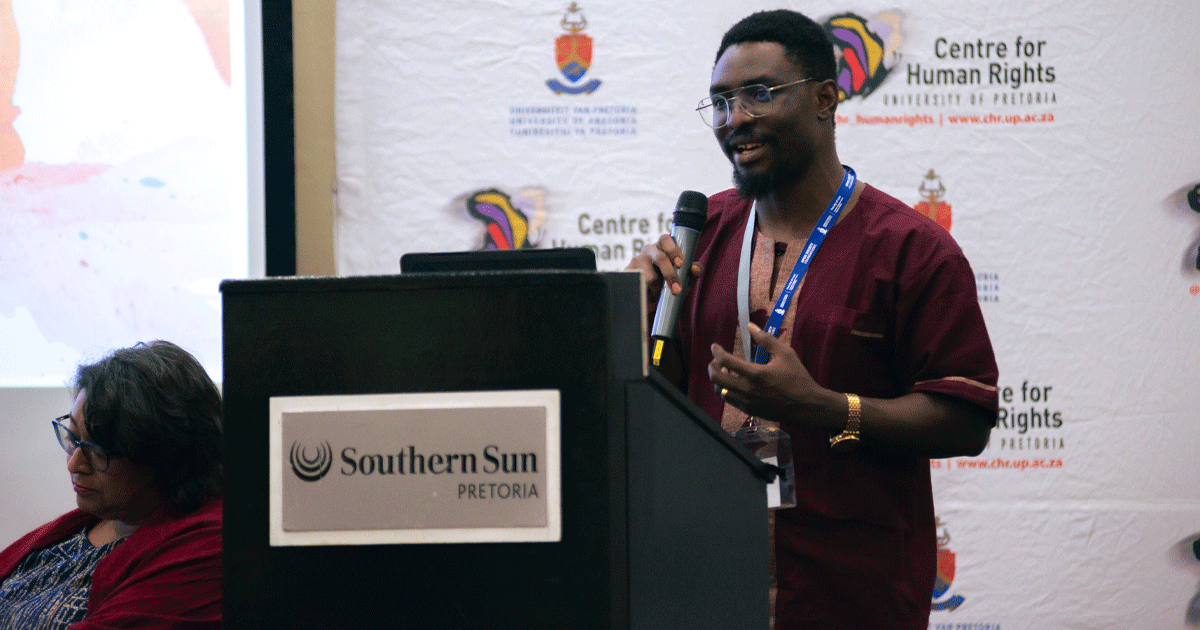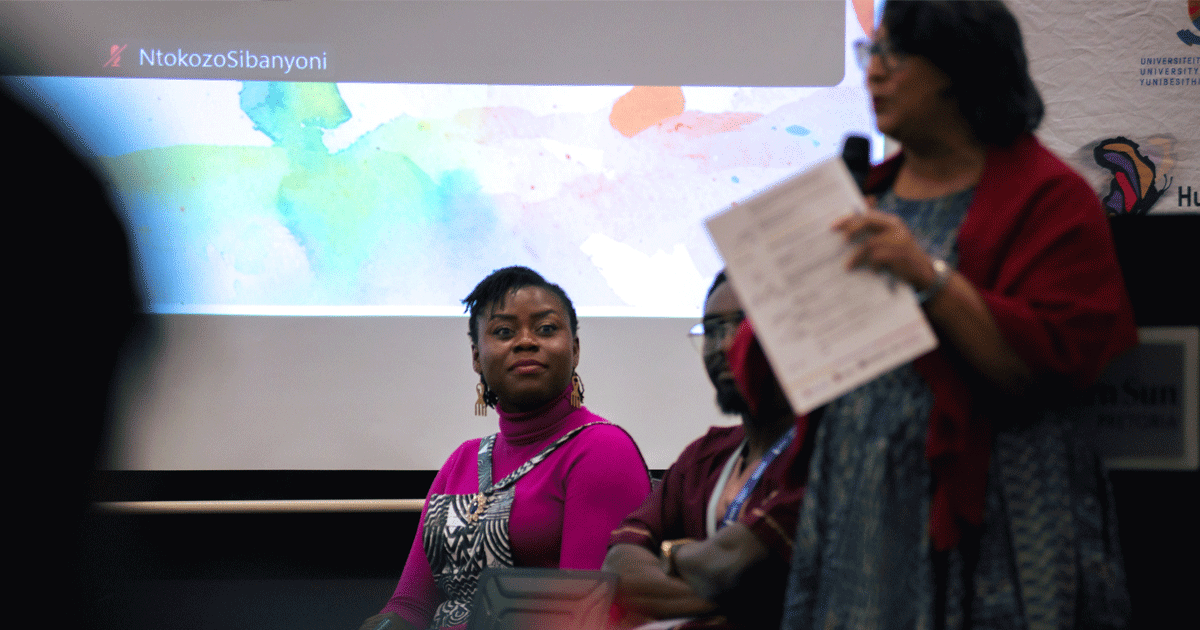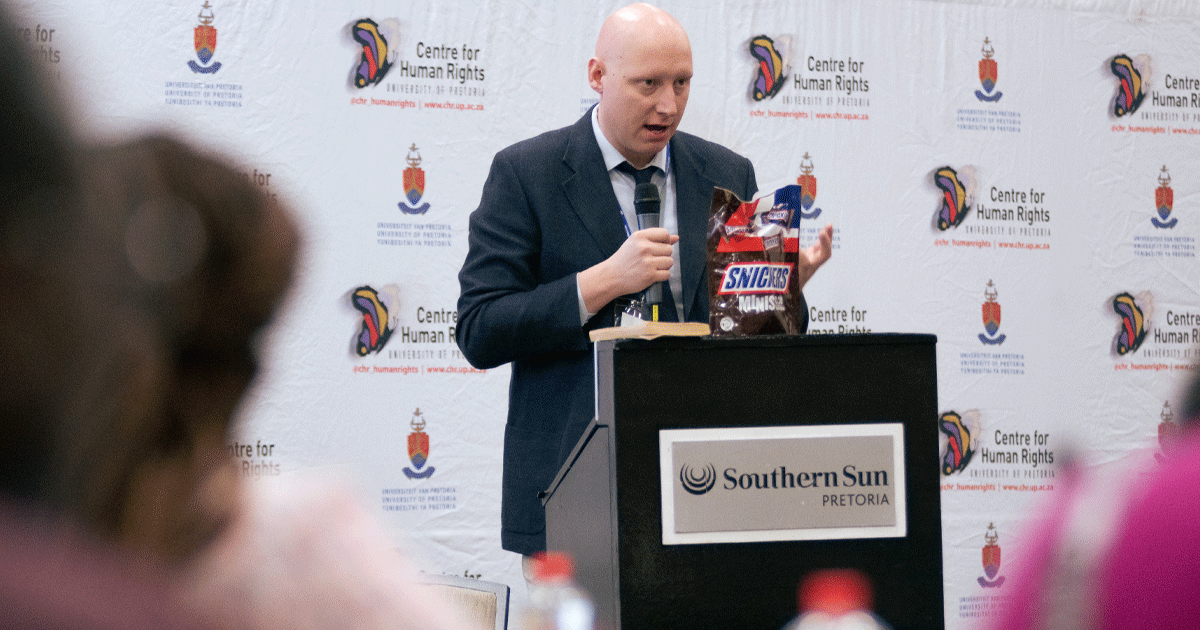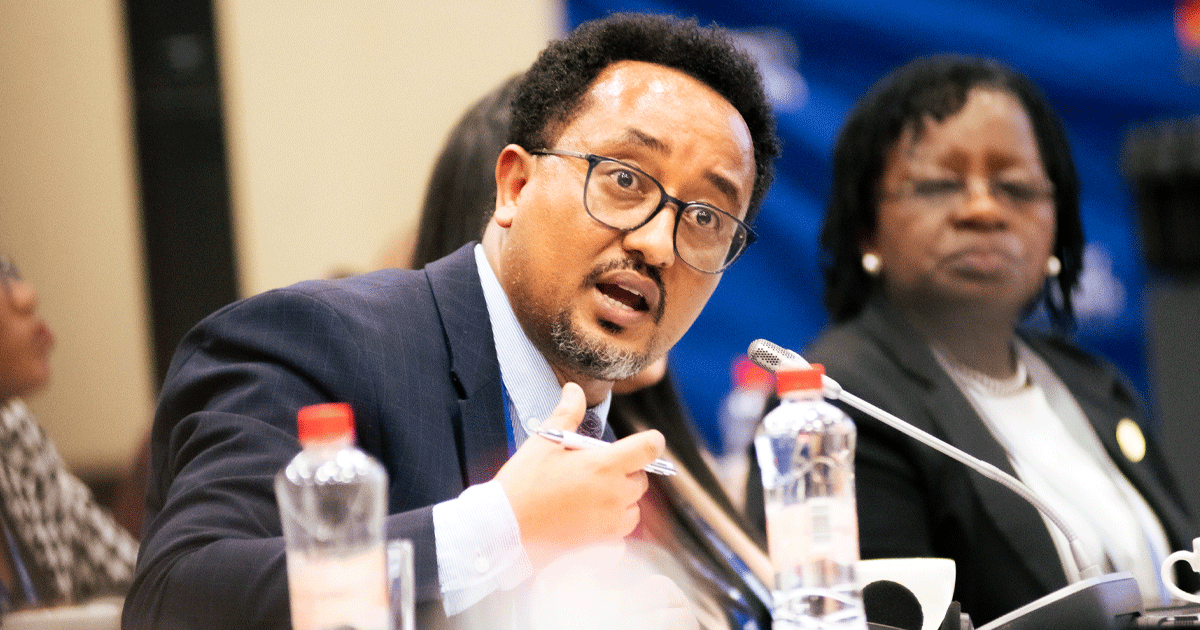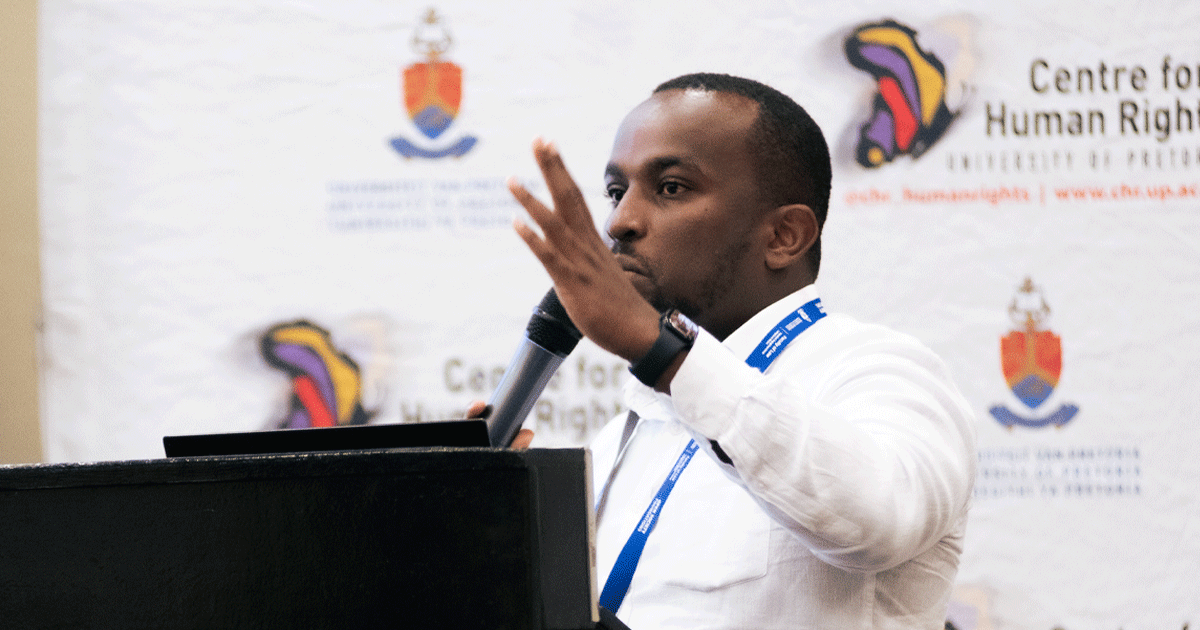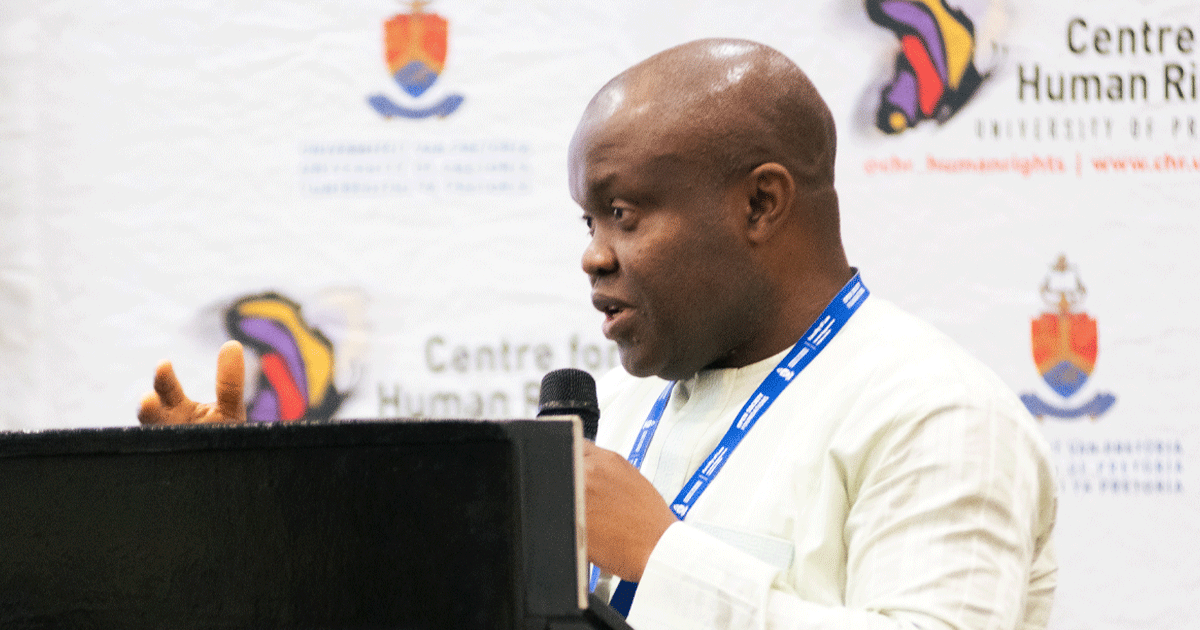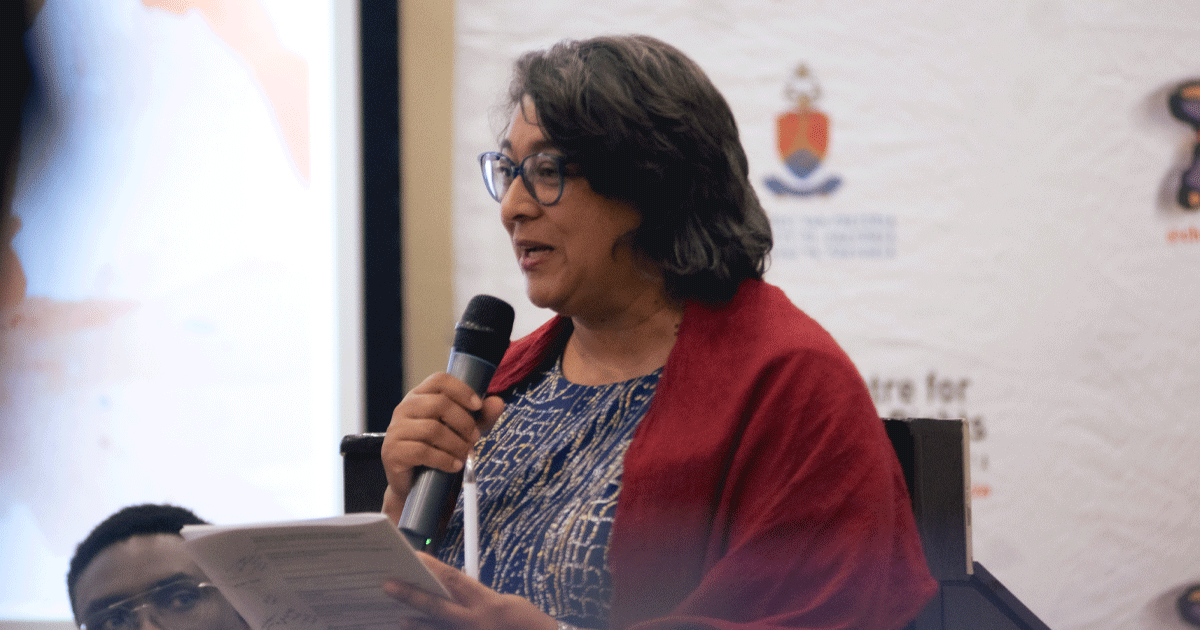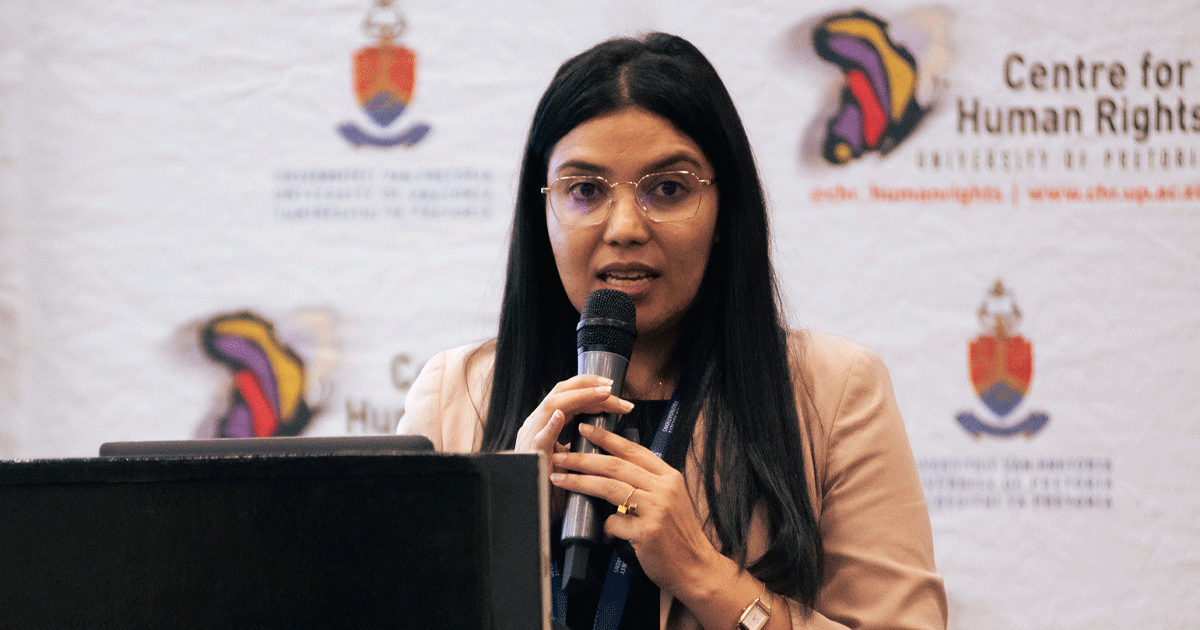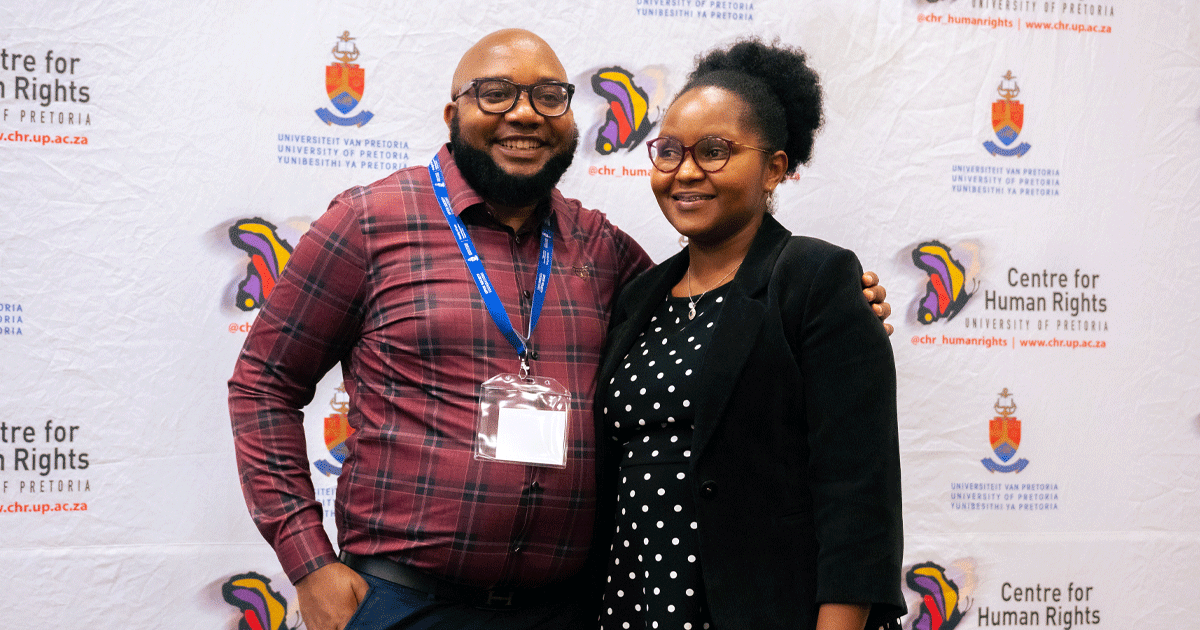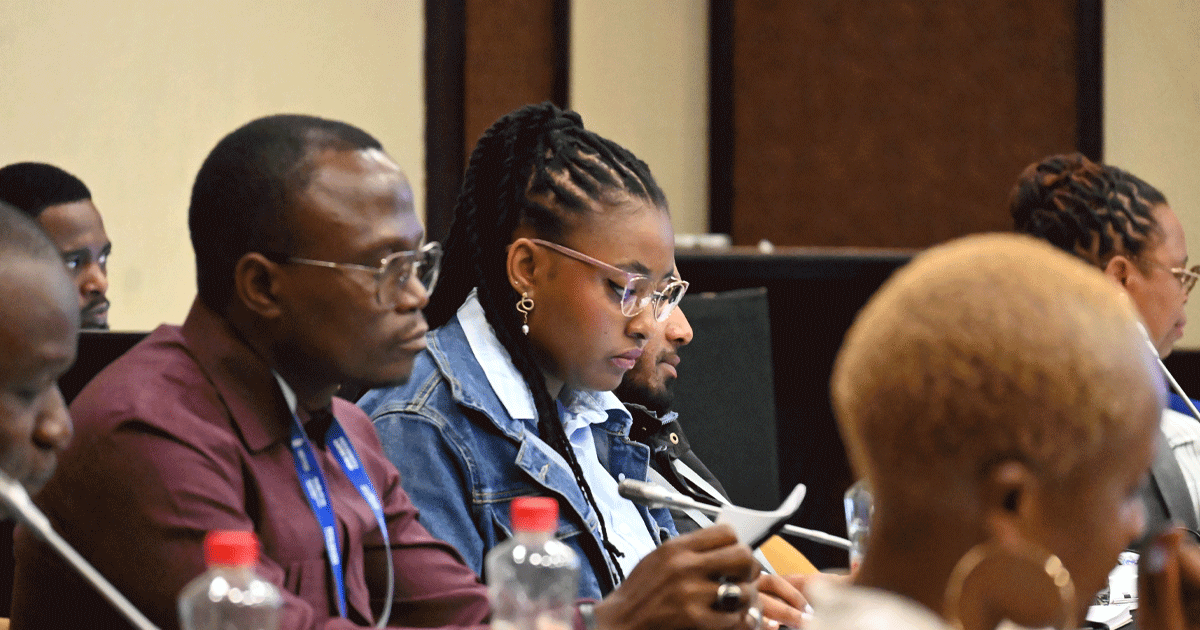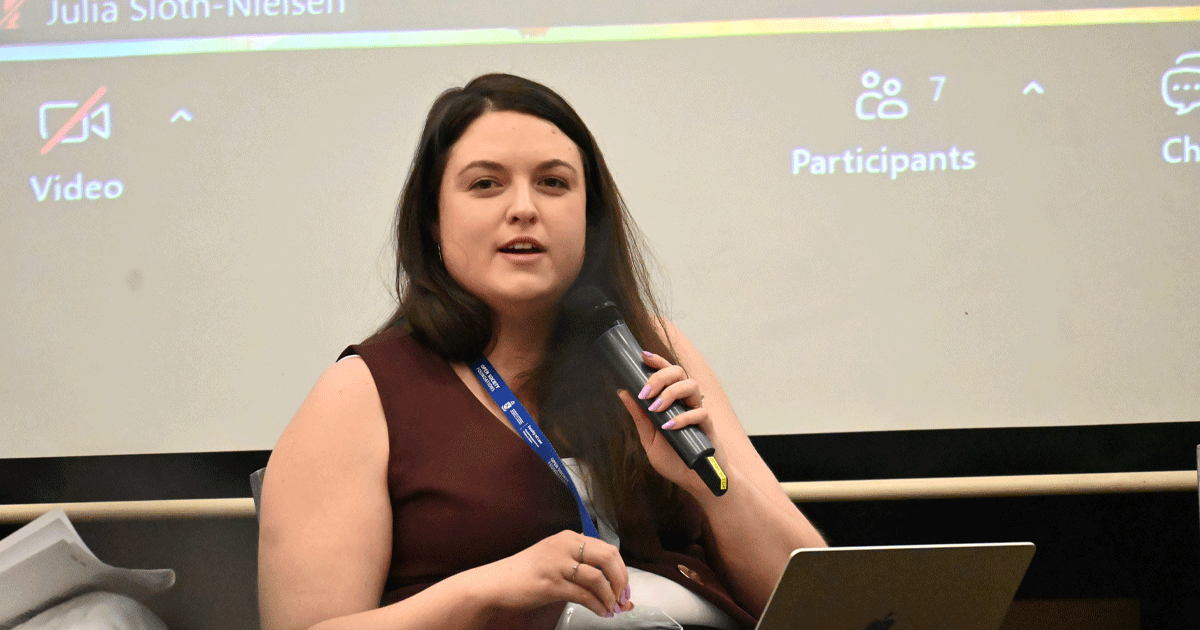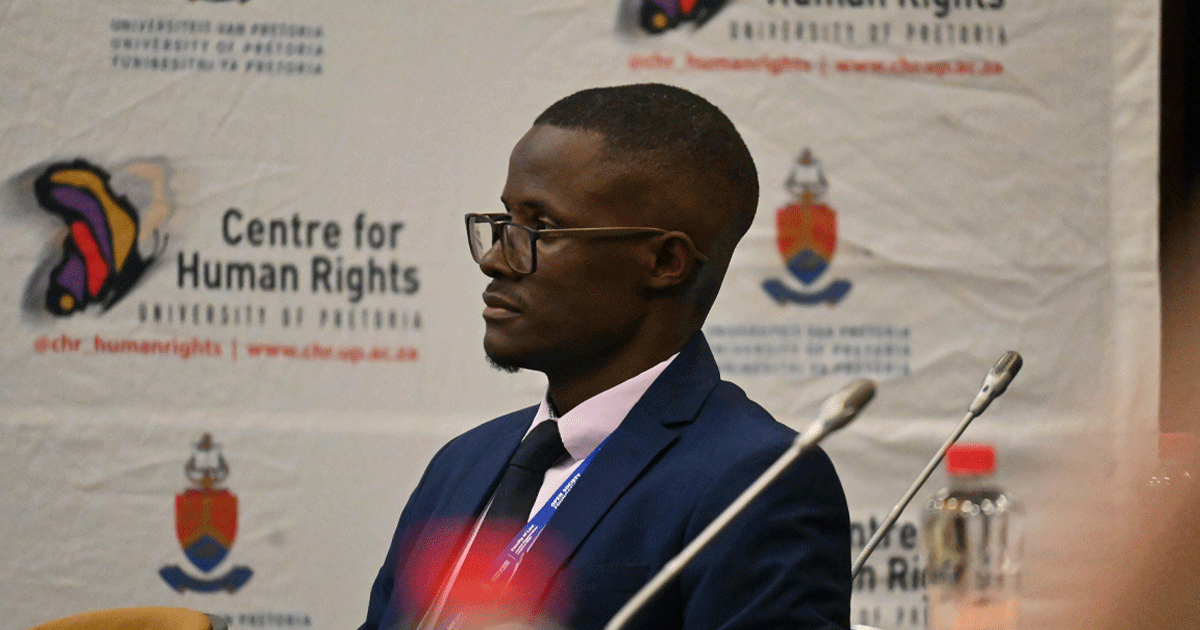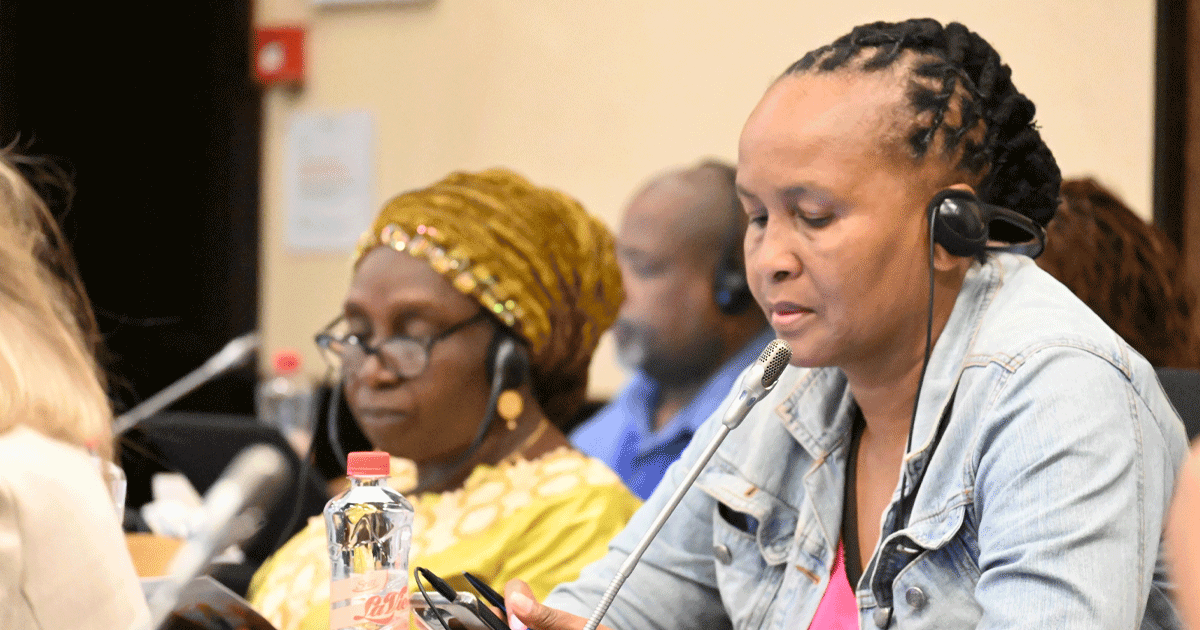On 30 September – 3 October 2025 the Centre for Human Rights, Faculty of Law, University of Pretoria, convened a four-day engagement aimed at strengthening the implementation and domestic impact of the decisions of the African Committee of Experts on the Rights and Welfare of the Child (ACERWC) across Africa. The events comprising a two-day high-level conference (30 September–1 October 2025) convened in collaboration with the ACERWC and a two-day civil society capacity-building workshop (2–3 October 2025) were held at the Southern Sun Hotel in Pretoria, South Africa, and streamed live on the Centre’sdigital platforms.
Both activities were held under a broader project of the Centre for Human Rights focusing on strengthening regional and continental accountability mechanisms for human rights protection. This project is implemented with the funding support of the Open Society Foundation.
The Implementation Conference: Deepening Dialogue on Impact
The conference provided a high-level platform for dialogue between the ACERWC and its Secretariat, national and regional stakeholders, scholars, and civil society actors to deliberate on strengthening the enforcement and influence of the Committee’s decisions at the domestic level. The event engaged participants on how best to ensure that decisions of the ACERWC translate into tangible protections for children’s rights, in line with the African Charter on the Rights and Welfare of the Child.
The programme featured a series of sessions and discussions by diverse stakeholders that explored broad implementation issues, communications-related challenges, and the role of stakeholders such as National Human Rights Institutions, civil society, traditional authorities, and academia in advancing the implementation of the Committee’s decisions. The conference also examined communications before the ACERWC, with case studies from Uganda, Sudan, Cameroon and the Central African Republic, as well as cross-cutting challenges including statelessness, climate governance, children in conflict with the law, and child participation in legal processes. Country-specific experiences from Nigeria, Ethiopia and South Africa were also presented. The conference concluded with a case discussion which offered reflections on the practice of amicable settlement in child rights litigation, and spotlighting the landmark IHRDA v Malawi case, the first amicable settlement of ACERWC. This was an opportunity to reflect on the practice so far, and discuss lessons for future child rights litigation in Africa.
Participants included members of the ACERWC Hon. Robert Nanima, Chair of the Working Group on Implementation of Decisions, and Hon. Anne Musiwa,who is also a Member of the Working Group, as well as the Executive Secretary of the ACERWC Secretariat, Dr Ayalew Getachew Asseffa and legal researcher, Aouatef Mahjoub.
The event further benefitted from the participation of representatives of the African Court on Human and Peoples’ Rights, the African Commission on Human and Peoples’ Rights, and the Pan-African Parliament, ensuring cross-institutional perspectives on the shared goal of strengthening human rights protection in Africa. Other stakeholders included members of the diplomatic community in Pretoria; Hon.Christina Nomdo, inaugural Children’s Commissioner of the Western Cape; Hon Nomahlubi Khwinana, Commissioner of the South African Human Rights Commission; who shared their experiences on working with children’s issues at the nation level.
The proceedings at this conference underscored the urgency of enhancing follow-up and compliance mechanisms, fostering collaboration between AU organs and national actors, and documenting good practices to entrench accountability for children’s rights at the national level.
Watch Recordings
Conference on the Implementation of Decisions of the African Committee of Experts on the Rights and Welfare of the Child
Photo Gallery
CSO Capacity Building Workshop: Strengthening Civil Society Follow-up on Implementation
Following the conference, the Centre hosted a capacity-building workshop for civil society organisations (CSOs) that have litigated before or are engaged with the ACERWC. The two-day workshop aimed to equip CSOs with the tools and strategies to monitor and advocate for the domestic implementation of ACERWC decisions.
This workshop covered, among others: conceptual grounding of implementation follow-up and its significance; avenues for CSO engagement and collaboration with national institutions; strategies for working with other regional human rights mechanisms; as well as evidence-based advocacy, data collection, and tracking national recommendations. These sessions were facilitated by Prof Frans Viljoen (University of Pretoria), Dr Ayalew Getachew Asseffa (Executive Secretariat, ACERWC), Dr Micha Wiebusch (Senior Legal Officer, African Court), Dr Musa Kika (Executive Director, IHRDA), Dr Tarisai Mutangi (University of Zimbabwe), Martin Onyango and Timothy Thondu (Centre for Reproductive Rights), Ms. Sheryl Kunaka (CWJ Fellow at the Centre for Human Rights), and Ms. Ntokozo Sibanyoni (Centre for Human Rights).
The workshop notably included practical exercises which enabled participants to develop implementation roadmaps outlining next steps in following up on their respective decisions in the cases they filed before the ACERWC.
This engagement reaffirmed the pivotal role of civil society in sustaining the momentum of ACERWC decisions and highlighted the importance of technical capacity, political engagement, data collection and collaborative networks in ensuring that children’s rights commitments are realised on the ground.
For more information, please contact:
Brian Kibirango
Manager: Litigation and Implementation Unit
Centre for Human Rights, University of Pretoria
Brian.Kibirango@up.ac.za
Ntokozo Sibanyoni
Junior Project Administrator
Centre for Human Rights, University of Pretoria
Ntokozo.Sibanyoni@up.ac.za
